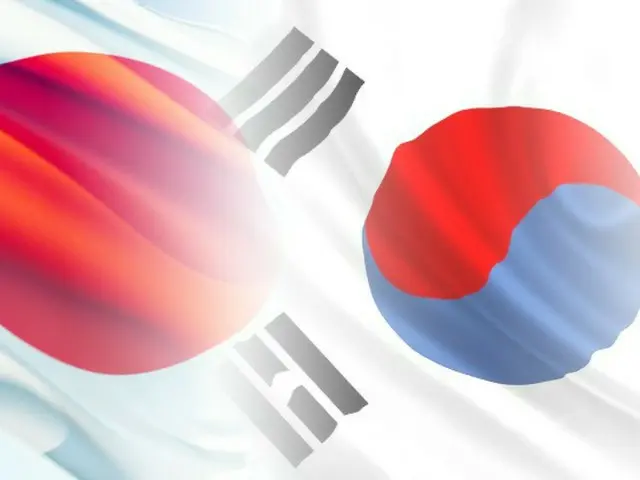The content of the broadcast by KBS on that day caused controversy. The Korean Peninsula was liberated from colonial rule by Japan after Japan's defeat in the Pacific War on August 15, 1945.
August 15th is called "Gwangbokjeol" (Liberation Day), which means the day that Korea regained its sovereignty. It is a national holiday, and a government-sponsored commemorative ceremony is held every year.
This year's event was held as usual, but there were some "unusual" points. One was the speech by President Yoon Seok-yeol.
The speech. In the presidential address on Liberation Day, there is usually a reference to relations with Japan, but on this day President Yoon did not touch upon Japan-Korea relations, and instead devoted most of his speech to explaining his "vision" for the unification of North and South Korea.
The word "Japan" only appeared in a segment announcing that South Korea's per capita gross national income will surpass Japan's for the first time in 2023.
In his speech, President Yoon emphasized, "We have a major historical task that we must resolve. That task is unification."
"The door to dialogue is open," he said, and called for "if North Korea makes steps toward denuclearization, we will begin political and economic cooperation." In his speech, he also announced a new unification promotion strategy, the "August 15 Unification Doctrine."
" was announced, with the aims of (1) fostering values of freedom within the country, (2) changing the North Korean people, and (3) working with the international community to achieve unification of North and South Korea. President Yoon said, "I want future generations of North Korea to have a vision of a free and unified nation.
"We must allow the people of Japan to have dreams and hopes for the future," he said. The Japanese media unanimously described President Yoon's absence of any mention of Japan-Japan relations in his speech as "unusual." Meanwhile, the South Korean news agency Yonhap News Agency
The news article explained, "Through its economic growth, South Korea has become a power equal to Japan's, and the fact that they are deliberately avoiding mentioning Korea-Japan relations can be seen as a sign of their confidence in 'overcoming Japan'."
According to Yonhap, a presidential office official said of the definition of "overcoming the Japanese Empire," "We must openly point out and improve upon our past history, but we must also work to become even bigger and create a greater future."
"The true way to overcome Japan is to look at the world and be welcomed by the international community while leading the way in cooperation with Japan," he said.
The Gwangbok Association, which is made up of activists involved in the Korean independence movement and their descendants and surviving relatives, and the largest opposition party, the Democratic Party of Korea, did not attend.
This was the first time that he did not attend the ceremony. The government appointed Kim Hyun-suk as the new director of the Independence Hall of Korea in Cheonan, South Chungcheong Province, this month.
However, the Gwangbok Association and other groups have expressed opposition to Kim, claiming he is a holder of "New Right" ideology that justifies Japan's colonial rule. They have indicated that they will not attend the ceremony unless the appointment is revoked.
On the same day, the Gwangbok Association held its own commemorative ceremony in Seoul. Also, the contents of a broadcast by KBS in the early hours of the same day have angered the Korean people.
" will broadcast a recording of the Seoul performance of the opera "Madame Butterfly." "Madame Butterfly" is set in Nagasaki at the end of the 19th century and tells the story of a woman named Butterfly who waits faithfully for her husband, a US Navy officer. In the work, Madame Butterfly wears a kimono.
In addition, the Japanese national anthem "Kimigayo" is played during the wedding scene. Viewers criticized the show for being inappropriate to broadcast an opera with a strong Japanese flavor on Liberation Day. KBS issued a statement
"The performance was recorded on June 29th and was scheduled to be broadcast at the end of July, but was postponed due to the Olympic Games broadcast, and will now be broadcast in the early hours of Liberation Day," Park Min said.
"On behalf of the executive branch, I would like to offer my sincere apologies for causing discomfort to the public on such an important day," he said in his apology.
The South Korean newspaper Hankyoreh, which has criticized the government for being biased toward Japan, said in an editorial on the 16th, "With the pro-Japanese behavior of the Yoon administration dividing the Liberation Day ceremony, it is unreasonable to expect that the public broadcaster KBS will hold the Liberation Day ceremony on the first day of the Liberation Day ceremony.
"Citizens are questioning whether it was a coincidence that the first (early morning) broadcast was an opera with a strong Japanese flavor," he said, adding, "The pro-Japanese tone of this administration has become systematic, as if it were full of conviction."
"This is what is being done," he said, growing increasingly distrustful.
2024/08/20 15:06 KST
Copyrights(C)wowkorea.jp 5

